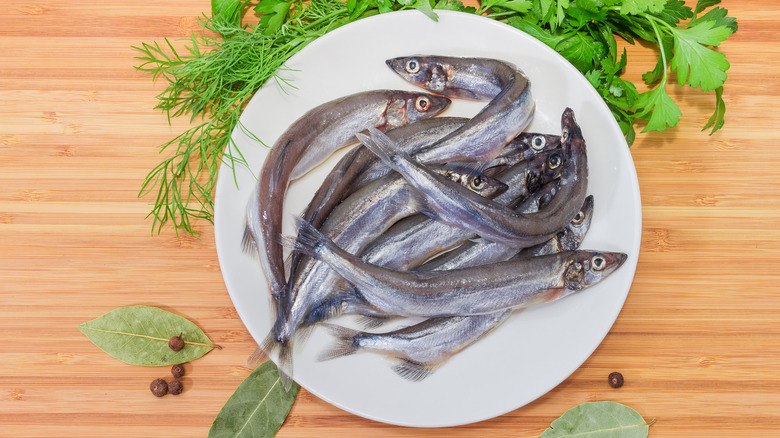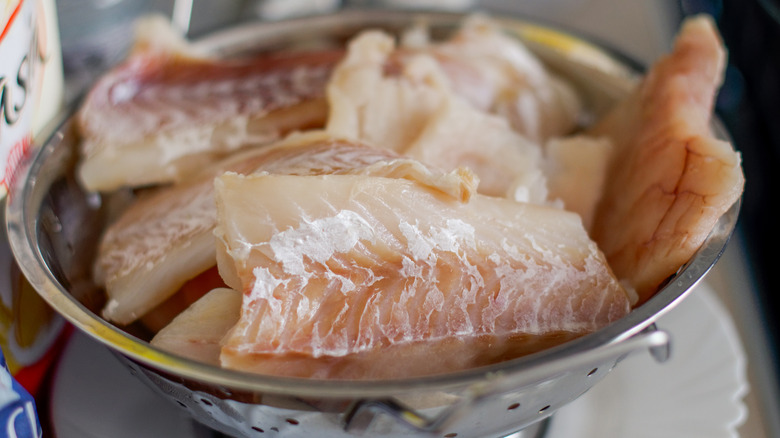Never Break This Fish Defrosting Rule
Fish is a superfood for many reasons — it has loads of nutrients such as protein, vitamin D, omega-3 fatty acids, and more (via Healthline). Plus, fish is well-known for promoting overall health and protecting you from ailments like heart disease and Alzheimer's. Need another reason to eat fish? Well, something like salmon is pretty versatile and you can cook it based on your personal preferences.
A knowledgeable Redditor advises others to always look for fresh fish no matter where they are. They write, "Try to buy your fish from a market or source you know exists near water. For instance, I don't order fish at a restaurant unless I'm near the ocean." For them, salmon is at the top of the list and they suggest that it tastes particularly good with lemon, dill onions, rice, and hollandaise sauce. However, if you get home from the grocery store and need to defrost your fish and aren't sure what the best method is, we have you covered.
Never use a microwave
In order to be safe, The Spruce Eats explains it's crucial to get your defrosting technique right, in order to reduce the risk of food poisoning. The easiest way to get this done is to keep your fish in the fridge all night, and never expose it to heat. For example, using warm water to thaw fish or simply leaving it out at room temperature are not safe practices.
And if you choose to microwave fish trying to defrost it, you'll find that you'll unintentionally end up cooking it and may also be welcoming a safety hazard. If you must speed up the process, use cold running water instead, but never expose your fish to heat under any circumstances while defrosting. As a Quora user put it, "Do not try to speed the process by defrosting in hot water because this will encourage bacteria on the food to multiply. Cook seafood thawed under cold water immediately after thawing."

